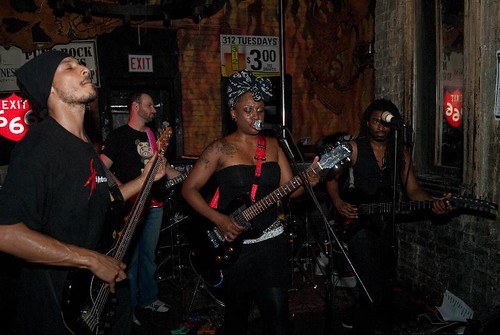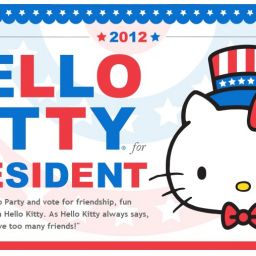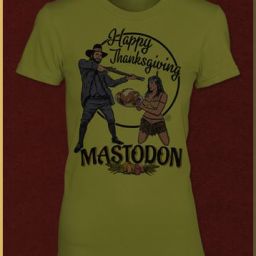
-By Raizel Liebler
If you are a fan, you should read Laina Dawes‘ What are You Doing Here?: A Black Woman’s Life and Liberation in Heavy Metal. Seriously. Yes, if you happen to sit in the middle of the venn diagram of North American, African-descent, female, and fan (or creator) of metal, then this book will likely speak more closely of your own personal experience.
But it is important for fans, consumers, and producers of media more generally to hear about these experiences — about lines of inclusion and exclusion. This book is part of the continued serious discussion about fandom — and I would place it alongside Henry Jenkins’s Textual Poachers: Television Fans and Participatory Culture and Deena Weinstein’s Heavy Metal: The Music and the Culture. These were some of the first books that took fandom seriously and showed that fans weren’t mindless Deceptacons, following the lead of big Consumerism (Megatron), but participants in the creation and continuation of culture. Henry Jenkins inspired many, including us to create The Learned Fangirl, and I fully expect What Are You Doing Here? to do the same for future audiences.
Dawes weaves together the disparate threads of perceptions of women of African descent (especially in North America), the history of Black women artists that “rock”, the experiences of fans first finding and engaging with metal, and about the difficulties of staying a metalhead for Black women. This isn’t an academic book — instead it is a work of cultural journalism — but it is smart throughout.
Dawes writes movingly about her fandom and the fandom of other Black women:
Talking to people for the first time about my favorite music, I catch myself preparing for the inevitable. I mentally rehearse my replies before the questions about my musical preference arise. I find the process stressful–and I wonder if I am being paranoid for thinking I will have to defend myself. … Black metalheads, especially black women, can expect to be publicly regarding their behavior, through negative comments, or in some cases, physical harassment. (83, 82)
Despite barriers, the black women that Dawes interviews still forge a connection to the music that speaks to them … and their experiences. She writes about fans who are accepted (except when they are not) and the difficulties of Black female metal musicians, finding the right “niche” in the present music industry.
I especially appreciate the discussions of sexism and racism in metal, including the different ways that Black female metalheads deal with these elements — ranging from limiting their music fandoms to dismissing anything that stands in the way of their love of the music. Dawes spends a large section of one chapter describing the aftermath of one particular example of racism — a statement by Pantera’s Phil Anselmo at a concert in the mid-90s. She describes the impact this had on metal fans, and those that use this statement as a rallying cry. But she also describes how Anselmo decries his past behavior, including but not limited to that statement, but (It is strange however that she doesn’t discuss the sexism that creeped into Pantera’s music at the same time; both negative moves have been later rejected by Anselmo.)
This book also comes at an important time for metal. Despite the stereotype by many that metal is now only the brutal subgenres that are from Scandinavia, much of U.S. metal is being created by bands that include women of people of color — ranging from Metallica & Slayer through Living Colour and Sepultura — and now TV on the Radio, etc.
Too often the only white guy asked “What are you doing here?” is Doctor Who — and he’s fictional (and not human). Privilege allows only a limited group of people to have any musical taste accepted by all — and hopefully this book will be an important step in showing that metal is music for all.
Summary: Metal isn’t music for white dudes — it is music for all, and Dawes’ book helps to prove it.
For more, TLF has an interview with Dawes here and here is her NPR interview.
(Disclaimer: The other co-founder of TLF, Keidra Chaney, is one of the interviewees cited in the book, including mentions of her important essay in Bitch Magazine — Sister, Outsider, Headbanger.)








Looking forward the reading this much needed book. But…how is TV on the Radio considered METAL?